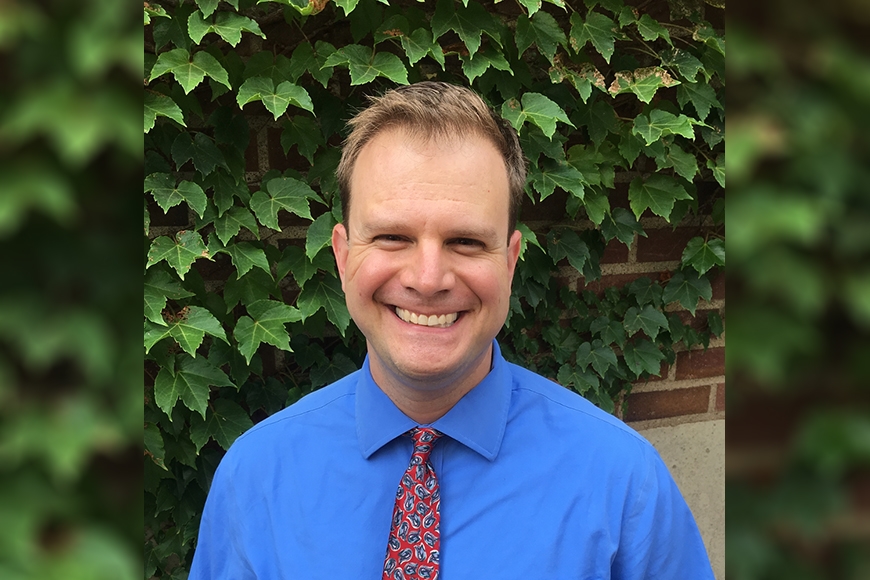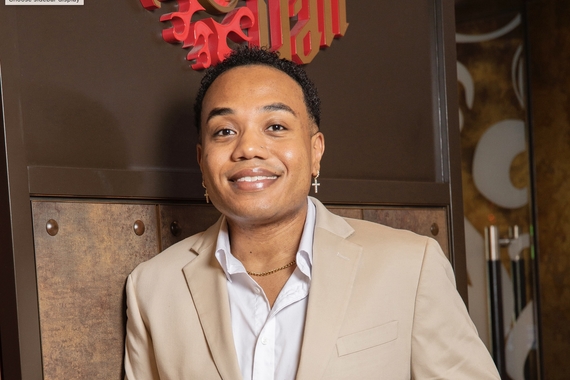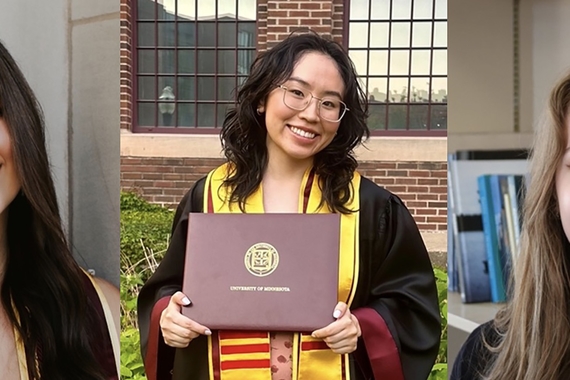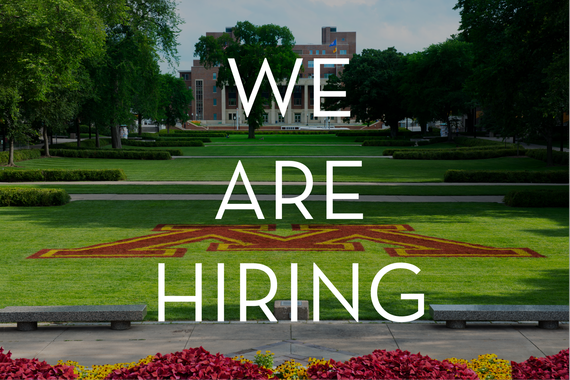Featured PhD Student: Jeremy Rosselot-Merritt
Where are you from?
I'm from the area in and around Cincinnati, Ohio. I grew up in Indiana and spent my adult years in Ohio before moving to Minnesota for the RSTC PhD program.
Where did you previously attend school? What was your degree in?
I have a bachelor of arts degree in communication arts (minor in written communication) from Mount St. Joseph University and a master of technical and scientific communication (MTSC) degree from Miami University of Ohio.
Why did you choose Writing Studies at the University of Minnesota?
My primary emphasis is in the areas of technical, professional, and business communication, and this program provides many unique opportunities to grow as a teacher and scholar in those areas. In addition to its academic strengths, the program has faculty, staff and grad students who are kind, collegial, and incredibly good at what they do. That focus and collegiality were very important to me.
What is your research area?
I am a workplace communication scholar in technical and professional communication with parallel research interests in business communication, emerging and open source technologies, and workplace dynamics. Basically, I'm interested in studying how writing and communication function in and shape workplaces, broadly defined.
What do you find most interesting about your research area?
I love studying the workplace. I love learning about how different workplaces operate, what challenges and affordances they have, how they can become more equitable and inclusive, and how academics and workplace professionals can converse more often and more effectively with one another. The workplace is core to our livelihoods and, in many ways, our identities; it's also an incredibly diverse construct when you consider all of the contexts in which work takes place--physical, virtual, networked, coworking, for-profit, non-profit, community-embedded, governmental, educational, and so on. Technical and professional communication scholars have studied and written about work contexts--and the communications surrounding them--extensively since the 1980s. And there's still much more to do.
Would you tell us about a project or course that was particularly meaningful to your professional development?
Two courses come to mind. One was WRIT 8505: Professional Practice with Professor Ann Hill Duin. This course afforded a level of creativity through which I really started to develop my identity as as scholar and researcher. Another course I really valued was WRIT 8540, a Writing Studies seminar on critical pedagogies in composition with Professor Pat Bruch. This class encouraged me to think about writing pedagogy and social justice in ways that really expanded my perspective.
What class are you teaching and what is your favorite thing about teaching it?
This year I am teaching WRIT 3562W, Technical and Professional Writing. I really enjoy teaching this course for three reasons. First, I get to work with students from a wide variety of majors; that leads to the second reason, which is that I'm always learning something new from my students. The third reason I enjoy teaching this course is that I know students can apply what they learn in this course in their futures.
What research/teaching projects are you planning for the future?
My advisor, Professor Lee-Ann Kastman Breuch, and I are currently analyzing interview data from former graduate students in technical and scientific communication on their academic and workplace experiences; we're moving this work forward and thinking of expanding it in the future. I'm also working on a couple of collaborative projects, both with Dr. Janel Bloch at Northern Kentucky University, on expectations of business communication scholars in higher education and on ways of conceptualizing workplace studies in technical and professional communication.
What are your interests / hobbies outside of academia?
When in the Twin Cities, we really like going to the Como Park area of St. Paul and could spend hours there. It's a lovely, walkable area with gorgeous views and friendly people.
I'm also quite enthusiastic about my home city of Cincinnati, Ohio. I love it, in fact. For instance, I'm an avid fan of Cincinnati Reds baseball, Cincinnati-style chili (particularly Skyline), Graeter's Ice Cream, and LaRosa's Pizza.
What advice would you give to someone considering pursuing their PhD with Writing Studies?
Going into a PhD program like this is a major investment of time and energy. The kind of energy a person will need to invest spans intellectual, emotional, and social aspects of one's life. While you can expect to work hard, you also need to have a grounding outside of your academic life; that grounding may be in the form of something spiritual, it may be your family, it may be one or more hobbies you have, it may be a combination of things that make you unique.
The intrinsic benefits of this kind of work are numerous. You get to work with smart, thoughtful people who care about social justice and their communities. You experience the joy of helping students succeed as writers and move toward achieving their goals. You get to have a voice in things that can really make a difference, and you grow a lot, too. Yet there are challenges. There's a lot of rejection in the world of scholarly publishing, for example. The work can be very hard and time-consuming, and if you want to publish (for instance), you have to be very persistent at times in order to see it through. The academy is a many-splendored thing, and sometimes it takes some work to see the splendor.
Believe in yourself; ground yourself in something meaningful to you. Be compassionate to yourself and others. Reach out to members of your scholarly community (such as professors and other PhD students) and see just how much they can help you, answer questions you might have, and point out opportunities for professional development and collaboration. You have a great community in RSTC; how you choose to be a part of it and cultivate this experience is up to you.



